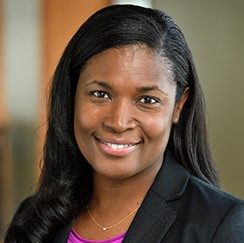The term, "generational trauma" (trauma that isn’t just experienced by one person but extends from one generation to the next) came out of the Holocaust but its effects have been around for centuries. It can be silent, covert, and undefined, surfacing through nuances or inadvertently taught, and confusing for all involved.
But the cycle can be broken by the simple act of starting a conversation.
Tamar Rodney, PhD, PMHNP-BC, CNE is an assistant professor at Johns Hopkins School of Nursing. Her research and clinical work focus primarily on improving PTSD diagnosis and treatment.
For information about treatments for PTSD please visit The Treatment Hub.
Generational trauma is a term, which actually came out of the Holocaust, which is - in many ways - disappointing that it took that to come up with a term, but also good that we recognize that awful events happened centuries, well, decades and centuries ago are now classified as affecting even the way we live today. How is it passed on from generation to generation is primarily because it was never dealt with.
I will say that when it’s spoken of, it’s usually spoken of as something that is never ending, and it’s a negative cycle, but there is also a way to break that cycle.
And again, I want to just reemphasize that starting the conversation and recognizing that this happened, it negatively affects the way we interact with each other within our own communities and how we project that onto other individuals is continuously a negative cycle but we can break that in the way we look at it by for us accepting that it was and then treating each other differently and also making a promise not to be that person who will treat somebody else negatively for it to continue to affect them.
So, it’s a whole lot of layers of responsibility, but it starts by acknowledging on both sides, on the doers and the recipients that yes, this was bad for everyone involved, but it doesn’t have to continue to be bad. We can break it in that generational cycle.
BrainLine is powered in part by Wounded Warrior Project to honor and empower post-9/11 injured service members, veterans, and their families.
About the author: Tamar Rodney, PhD, PMHNP-BC, CNE
Tamar Rodney, PhD, PMHNP-BC, CNE is an assistant professor at Johns Hopkins School of Nursing. Her research and clinical work focus primarily on improving PTSD diagnosis and treatment.

